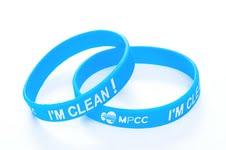MPCC repeats call for WADA to prohibit corticosteroids and tramadol
Open letter to Niggli: 'What are you waiting for?!'

The Movement for Credible Cycling has reiterated its calls for the World Anti-Doping Agency to prohibit the use of corticosteroids and tramadol in competition. In an open letter to WADA director general Olivier Niggli, the MPCC has decried WADA's inaction over the use of corticosteroids and the painkiller tramadol, with the refrain "What are you waiting for?!" repeated on no fewer than five occasions.
"Since the creation of the Movement for a Credible Cycling (MPCC), we have been warning continuously your agency regarding the issues of corticoids and we have been advising the prohibition of tramadol since 2013," read the letter, signed on behalf of the MPCC by its president Roger Legeay.
"Ever since, we have faced those same answers that seem to be the political will included in the phrase: 'wait and see.' Indeed, your answers never change: 'we are setting up a commission,' 'we will make the working group aware of that,' 'we keep on monitoring'…"
Under the MPCC's voluntary rules, riders may not use tramadol during competition, or use cortisone in races even with a therapeutic use exemption. Riders must be withheld from competition for eight days after being treated with corticosteroids.
MPCC teams submit to additional, voluntary controls on the cortisol levels of their riders. A low cortisol level can indicate the recent use of corticosteroids, and MPCC teams agree to withhold such riders until their levels return to normal.
In 2014, for instance, Lampre pulled defending champion Chris Horner from the start of the Vuelta a España after he returned a low cortisol level in a pre-race test. The following year, however, Astana declined to withdraw Lars Boom from the Tour de France in similar circumstances, and the squad subsequently left the MPCC.
In Friday's letter, the MPCC outlined that it had performed 2953 cortisol tests since 2008, with 14 revealing a low cortisol level. There are currently seven WorldTour teams in the MPCC – AG2R La Mondiale, Bora-Hansgrohe, Cannondale-Drapac, FDJ, Dimension Data, Lotto Soudal and Sunweb – as well as 19 Pro Continental teams, 13 Continental teams and 6 women's teams.
The latest race content, interviews, features, reviews and expert buying guides, direct to your inbox!
"All the experts and chief doctors agree to say that an abnormally low cortisol level is dangerous for the athlete's health in case [of] crashes or high stress situations. International scientific literature confirms this risk," the MPCC wrote. "All of them notice and precise that an abnormally low cortisol level only can be provoked by an external corticoids intake, legal or not."
The MPCC letter proceeded to point out the performance-enhancing properties of corticosteroids, an issue that was given additional prominence last year when the Fancy Bears cyber hacking group demonstrated that Bradley Wiggins had received authorisation to use the corticosteroid triamcinolone acetonide ahead of Grand Tours in 2011, 2012 and 2013. Wiggins said that he had received injections of the corticosteroid to treat a pollen allergy, and denied that it had enhanced his performance.
"This issue regarding the athlete's health comes along with the verified observation – that your agency confirmed – that glucocorticoids are performance enhancing," the MPCC wrote. "The WADA medical commission for health and research president's correspondence issued on the 8th of September of 2015 is particularly indicative about this matter. According to your agency, today's issue is that it is impossible to determine if an intake has been realized legally or not when testing. You also say that the experts disagree on total prohibition. This isn't an acceptable situation. We can't accept that, even if you are aware that those products are performance enhancing drugs, you still authorize their intake while racing under certain terms."
At a conference in London in March of this year, WADA director general Olivier Niggli acknowledged that the TUE system needed to be revised and said that a group had been set up to examine the matter, but the MPCC called on him for more immediate action.
"As your statements from the 8th of March of 2017 confirm, we all know that the TUEs system generates terrible perverse effects. Some people use those effects to enhance their performance. WE CANNOT WAIT ANY LONGER, YOU [H]AVE TO ACT," read the MPCC letter.
The MPCC also criticised WADA's inaction over the use of Tramadol, pointing out that the UCI, whose anti-doping rules are tied to the WADA code, has asked for the painkiller to be banned.
"Last year, the UCI sent you a full record asking for the prohibition of tramadol during competitions and your agency's only answer was monitoring, 'wait and see,'" the MPCC wrote.
The MPCC letter concluded by asking the WADA for clarification on whether it intends to name all of the athletes who were implicated in the Operacion Puerto blood doping investigation in 2006: "I take this opportunity to ask questions about judicial consequences of the PUERTO case? What is WADA's point of view?"
WADA last year won an appeal to prevent the 211 blood bags from being destroyed and has reportedly identified all of the athletes involved. In June, however, a Spanish court ruled that WADA could not publish their names. 19 of Eufemiano Fuentes' 36 clients remain unidentified.

